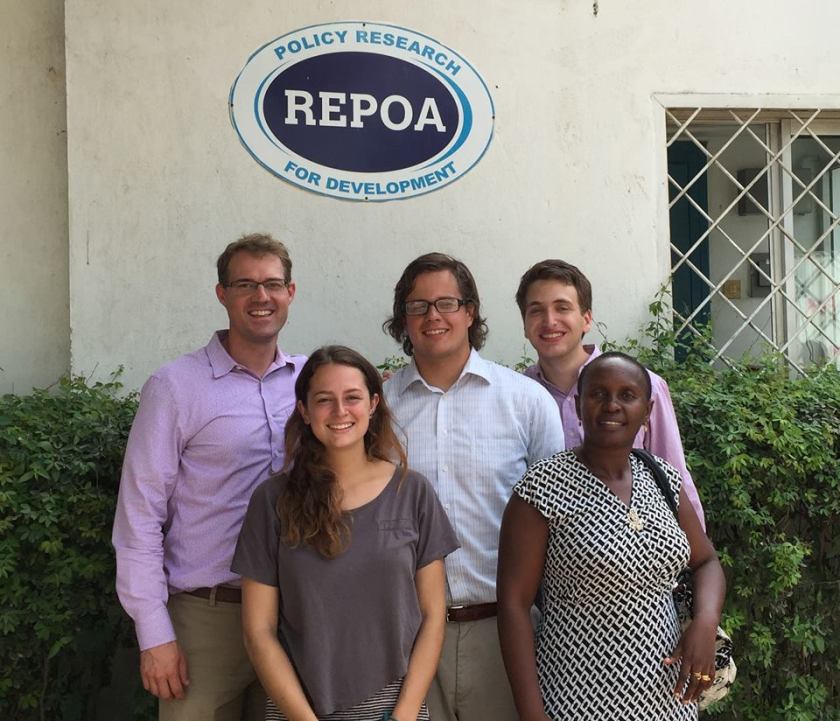By Matthew Bondy, College of William & Mary

The spread of mobile phones over the past thirty years to both developed and developing countries alike has changed the way people interact socially, commercially, and politically. However, access to this technology has not been universal. In particular, women in developing countries are less likely to own mobile phones than men and are less likely to participate in politics.
In my paper, “Mobile Phone Ownership, Gender, and Political Participation in Africa,” I examine whether owning a mobile phone is associated with increased likelihood of individuals engaging in the political process and whether there is any interaction between mobile phone ownership and gender when it comes to political participation.
These questions are worth examining because, first, the ability to use a friend or neighbor’s phone is different from actually owning one—a distinction that previous literature on the topic has not taken into account. And second, the paper brings together the literatures on the information and communication technologies (ICTs) revolution and the gender gap in political participation. To the extent that the Mobiles for Development (M4D) movement remains influential, these empirical questions are also relevant to decision-makers in the policy and development communities.
I theorize that mobile phone ownership leads to increased political participation. The ability to exchange information more easily could lead to an increased interest in politics or an awareness of the political process that allows for participation. Additionally, owning a mobile phone may be empowering—adding to a person’s sense of political efficacy, or sense in his or her ability to contribute to politics—which has been linked to participation.
In an observational study using the Afrobarometer dataset along with some additional country-level variables, I show that mobile phone ownership is associated with a statistically significant increase in political participation. In particular, I examine the likelihood that respondents contacted a member of parliament, attended a community meeting, attended a political rally, and the participants’ interest in politics overall.
In fact, my preliminary findings show that owning a mobile phone is associated with an approximately 3 percentage point increase in contacting a member of parliament. For attending a community meeting, that number is about 5 percentage points, and for attending a rally it is about 6 percentage points. Having a phone in the household (but not owning one individually) is associated with about only half as much of an increase in political participation.
The study also confirms that even controlling for other factors, being female is linked to decreased political participation. Although the interaction between mobile phone ownership and gender is not statistically significant for most of the models, there was a statistically significant relationship when the dependent variable was attending a community meeting. (5.3 percentage points, where the base outcome was that 57 percent of respondents attended a community meeting.)
These findings seem promising, but they don’t necessarily show a causal relationship between mobile phone ownership and political participation. In order to test the causal hypothesis, I plan to combine the observational study with experimental data as a part of my ongoing work with William & Mary’s Center for African Development (CAD).
Philip Roessler the director of CAD, along with Flora Myamba, Dan Nielson, and Peter Carroll, is conducting a field experiment on mobile phone ownership and women’s empowerment in Tanzania. The experiment entails the randomization of mobile technology training and handsets to non-phone owners. At this time, the field research for this project is still ongoing. But their most recent findings show that providing low-income women with mobile phones significantly boosts their access to and use of mobile money, especially for women who are literate or are relatively more educated. With this study we will also be able to assess whether mobile phone ownership has a causal effect on political participation by comparing the degree of political engagement of those who receive phones and those in the control group.
I was encouraged by the positive feedback and suggestions for improvement that I received on my poster at the MPSA conference in 2016 and I am excited to continue my research on this issue. Professor Roessler and I are exploring additional methods to tackle some of our remaining research questions and we hope that additional findings will be forthcoming.
About the Author: Matthew Bondy recently graduated from the College of William & Mary with a B.A. in International Relations and will be returning in the fall to pursue a M.S. in Business Analytics. Bondy received the award for Best Paper Presented as a Poster for his research presented at the 2016 MPSA conference.
